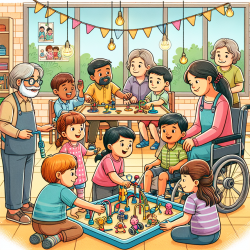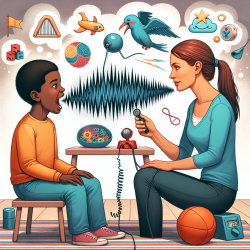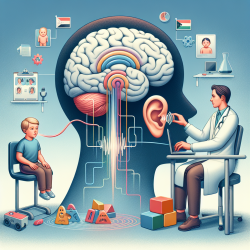In the ever-evolving field of psychotherapy, ensuring that therapists possess the necessary skills and competencies to effectively deliver interventions is crucial. The recent research article titled "Assessing Therapist and Clinician Competency in Parent-Infant Psychotherapy: The REARING Coding System (RCS) for the Group Attachment Based Intervention (GABI)" sheds light on a novel approach to enhancing therapist competencies. This blog explores how practitioners can leverage the findings from this study to improve their skills and contribute to better outcomes for families.
Understanding the REARING Coding System
The REARING Coding System (RCS) was developed as a competency-based measure for clinicians delivering the Group Attachment Based Intervention (GABI). GABI is designed to support family preservation by strengthening parent-child attachment relationships in families facing multiple systemic challenges. The RCS evaluates therapist efficacy by focusing on key components of therapeutic action such as Reflective Functioning, Emotional Attunement, Affect Regulation, Reticence, Intergenerational Transmission of Attachment Patterns, Nurturance, and Group Therapy Context.
Implementing RCS in Clinical Practice
The RCS provides a structured framework for therapists to assess and enhance their competencies. By utilizing video recordings of therapy sessions, clinicians can engage in self-reflection and receive targeted feedback from supervisors. This process allows therapists to identify areas for improvement and refine their skills through deliberate practice.
- Reflective Functioning: Therapists are encouraged to explore underlying reasons for behaviors and emotions within the parent-child dyad. This involves labeling emotions and fostering a deeper understanding of mental states.
- Emotional Attunement: Practitioners learn to empathize with and reflect back expressed feelings. This skill helps convey a sense of understanding to both parents and children.
- Affect Regulation: Therapists develop strategies to manage both negative and flat affective states within sessions. Techniques such as calming activities are employed to reduce distress.
- Reticence: The ability to mindfully step back allows clinicians to observe interactions without interrupting them, fostering self-efficacy within the dyad.
- Intergenerational Transmission: Acknowledging past experiences helps parents understand how their upbringing affects current parenting practices.
- Nurturance: Providing warmth and empathy is essential for creating a secure base for both parents and children.
- Group Context: Engaging group members fosters social support and enhances therapeutic outcomes through shared experiences.
The Role of Video in Supervision
The use of video recordings is integral to assessing therapist competence. It provides a unique opportunity for supervisors and clinicians to review both verbal and non-verbal aspects of therapy sessions. This method not only enhances adherence but also promotes reflection-in-action, allowing therapists to adapt interventions based on real-time interactions.
Encouraging Further Research
The development of competency measures like the RCS is vital for bridging the gap between research settings and community-based practice. Practitioners are encouraged to engage with ongoing research in this area to stay informed about best practices and contribute to the advancement of evidence-based interventions.
The REARING Coding System represents a significant step forward in enhancing therapist competencies within parent-infant psychotherapy. By implementing this system, practitioners can ensure that they deliver high-quality interventions that meet the unique needs of families facing complex challenges.
To read the original research paper, please follow this link: Assessing therapist and clinician competency in parent-infant psychotherapy: The REARING coding system (RCS) for the group attachment based intervention (GABI).










